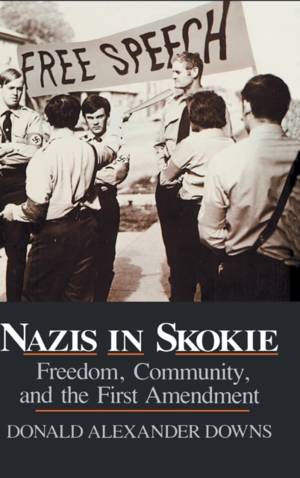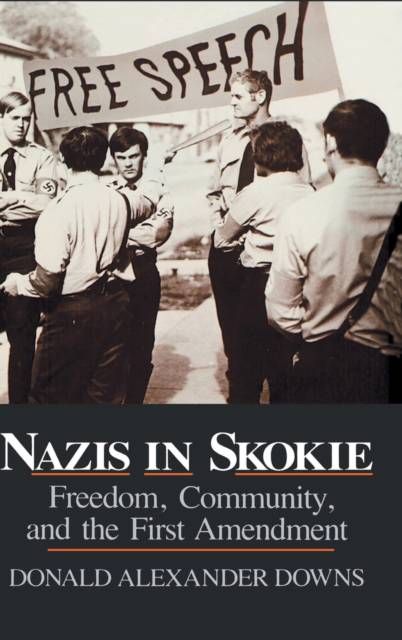
- Afhalen na 1 uur in een winkel met voorraad
- Gratis thuislevering in België vanaf € 30
- Ruim aanbod met 7 miljoen producten
- Afhalen na 1 uur in een winkel met voorraad
- Gratis thuislevering in België vanaf € 30
- Ruim aanbod met 7 miljoen producten
Zoeken
€ 169,95
+ 339 punten
Uitvoering
Omschrijving
In 1977, a Chicago-based Nazi group announced its plans to demonstrate in Skokie, Illinois, the home of hundreds of Holocaust survivors. The shocked survivor community rose in protest and the issue went to court, with the ACLU defending the Nazis' right to free speech. The court ruled in the Nazis' favor. According to the "content neutrality doctrine" governing First Amendment jurisprudence, the Nazis' insults and villifications were "neutral"--not the issue, as far as the law was concerned. But to Downs, they are at issue. In Nazis in Skokie he challenges the doctrine of "content neutrality" and presents an argument for the minimal abridgment of free speech when that speech in intentionally harmful. Draawing on his interviews with participants in the conflict, Downs combines detailed social history with informed legal interpretation in a provocative examination of an abiding tension between individual freedom and community integrity, and between procedural and substantive justice.
Specificaties
Betrokkenen
- Auteur(s):
- Uitgeverij:
Inhoud
- Aantal bladzijden:
- 240
- Taal:
- Engels
- Reeks:
- Reeksnummer:
- nr. 1
Eigenschappen
- Productcode (EAN):
- 9780268009687
- Verschijningsdatum:
- 31/03/1985
- Uitvoering:
- Hardcover
- Formaat:
- Genaaid
- Afmetingen:
- 152 mm x 229 mm
- Gewicht:
- 489 g

Alleen bij Standaard Boekhandel
+ 339 punten op je klantenkaart van Standaard Boekhandel
Beoordelingen
We publiceren alleen reviews die voldoen aan de voorwaarden voor reviews. Bekijk onze voorwaarden voor reviews.











